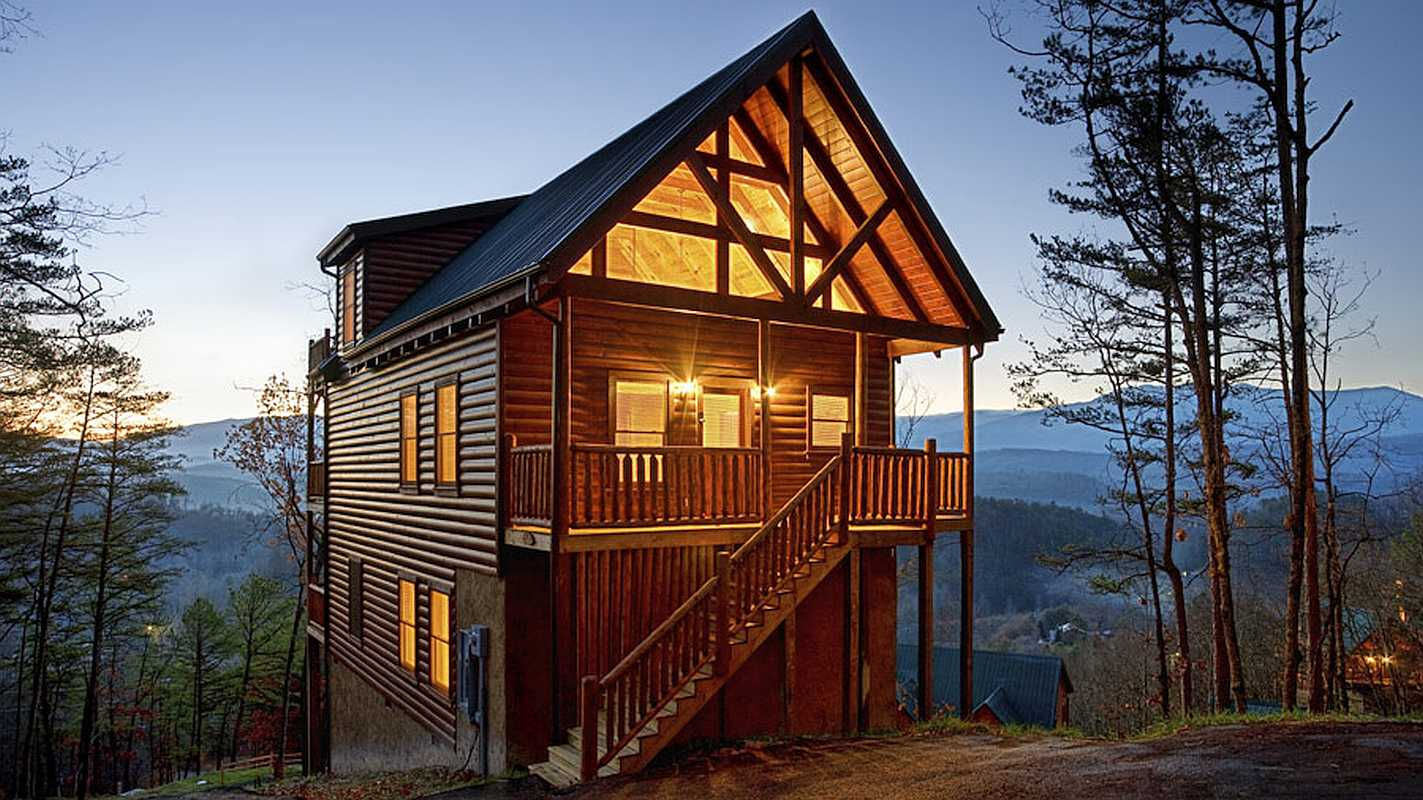If you’re dreaming of peace and quiet in a tranquil off-grid cabin, this post is for you. The allure of building a cabin far away from the noise and lights of the city is appealing to many would-be log cabin owners.
Connecting with nature and gazing at the stars under dark skies at night is a huge part of the allure of log cabin living, so going off grid seems like a natural fit for log cabin owners.
But before you take the leap, there are some important things to consider. Ahead we offer some tips if you’re seriously considering off-grid cabin living.
Off-Grid Living vs. Homesteading
You’ll often see the terms “off-grid” and “homesteading” used interchangeably, but they’re not necessarily the same thing.
- Off-grid refers to a home that’s not connected to utilities (like electric, sewer, and water). People who live off the grid may have solar panels or propane for electricity, a septic tank, and a well or creek on their property for water. They may produce some of their own food, but they typically still rely heavily on the mainstream economy for food and other necessities.
- Homesteading is a self-sufficient lifestyle where you produce all or most of what you consume at home. In addition to managing their own water, sewage (often with composting toilets), and electricity, homesteaders typically have a large property where they grow their own produce and raise animals for meat, milk, and eggs. Some even produce enough to sell at the market. Skilled homesteaders may also make other goods at home, such as clothing, handmade crafts, soaps, and cleaning supplies.
Tips for Making the Leap to Off-Grid Cabin Living
There are many benefits of living off the grid, from greater peace and tranquility to the satisfaction that comes with a more self-sufficient lifestyle. Here are some tips if you’re thinking about making the transition to off-grid cabin living.
1: Learn vital skills.
Even if you plan to drive to town occasionally for supplies, living off grid means you’ll need to acquire some essential skills. Being able to fix leaks, maintain heating systems, and repair structural issues can save you from many headaches.
Knowing how to hunt, fish, and forage can help you supplement your food supply, while wood harvesting is vital for heating and cooking. You’ll also need to master water collection if you don’t have a well or other reliable water source on your property.
Learning how to compost can help you manage waste at home—and turn it into valuable fertilizer for a garden. Finally, knowing basic first aid is essential for your family’s health and safety, especially if you’ll be far away from a hospital.
2: Practice resource conservation.
Conserving resources becomes second nature when you live off-grid. You’ll need to learn how to minimize your consumption of food, water, electricity, and gas or propane.
This might mean adopting habits like using energy-efficient appliances, collecting rainwater, and growing some of your own food. The ability to rely on yourself rather than the outside world in case of an emergency will give you greater peace of mind.
3: Learn emergency preparedness.
Whether you plan to live deep in the woods or on a high desert plain, preparing for emergencies is a cornerstone of off-grid living. You should have a plan for various scenarios, from natural disasters to medical emergencies.
Always have at least two months of non-perishable food, a supply of clean water, and a well-stocked first aid kit. Know how to use emergency communication devices and have a backup power source, like a generator. Make sure your family knows what to do and where to meet in case of an emergency.
4: Get in shape.
Even if you don’t plan to have a full-blown homestead, off-grid living can be physically demanding. You’ll need to be in good shape to handle tasks like hauling water, chopping wood, and performing home repairs.
Regular exercise and strength training will help prepare your body for the rigors of off-grid cabin living. Being physically fit ensures that you can handle the daily challenges of living off the grid without injuring yourself.
5: Consider a property with access to traditional utilities.
Many rural properties offer access to utilities. That doesn’t mean you need to connect to them, but having easy access can be helpful in a bind.
Whether your area suffers a natural disaster or, for whatever reason, you’re unable to meet your needs at home for a time, you’ll be able to tap into the essential resources your family needs.
Use an eLoghomes Kit to Build Your Off-Grid Cabin

More people than ever are using our log home kits to build their dream cabin. Our home models have already been expertly designed and engineered, so you can skip the costly and time-consuming step of hiring an architect.
Our log home packages streamline the home-building process, so you can make the transition to off-grid cabin living sooner, and we offer optional construction services for our log home shell packages. Learn more about the Eastern white pine logs we use in our log cabin packages and how eLoghomes leads the way in energy-efficient log home design.
Building your home with an eLoghomes package will give you a solid foundation on which to start living off grid. Explore our portfolio to find your perfect home, from 400 to 4,000+ square feet!

